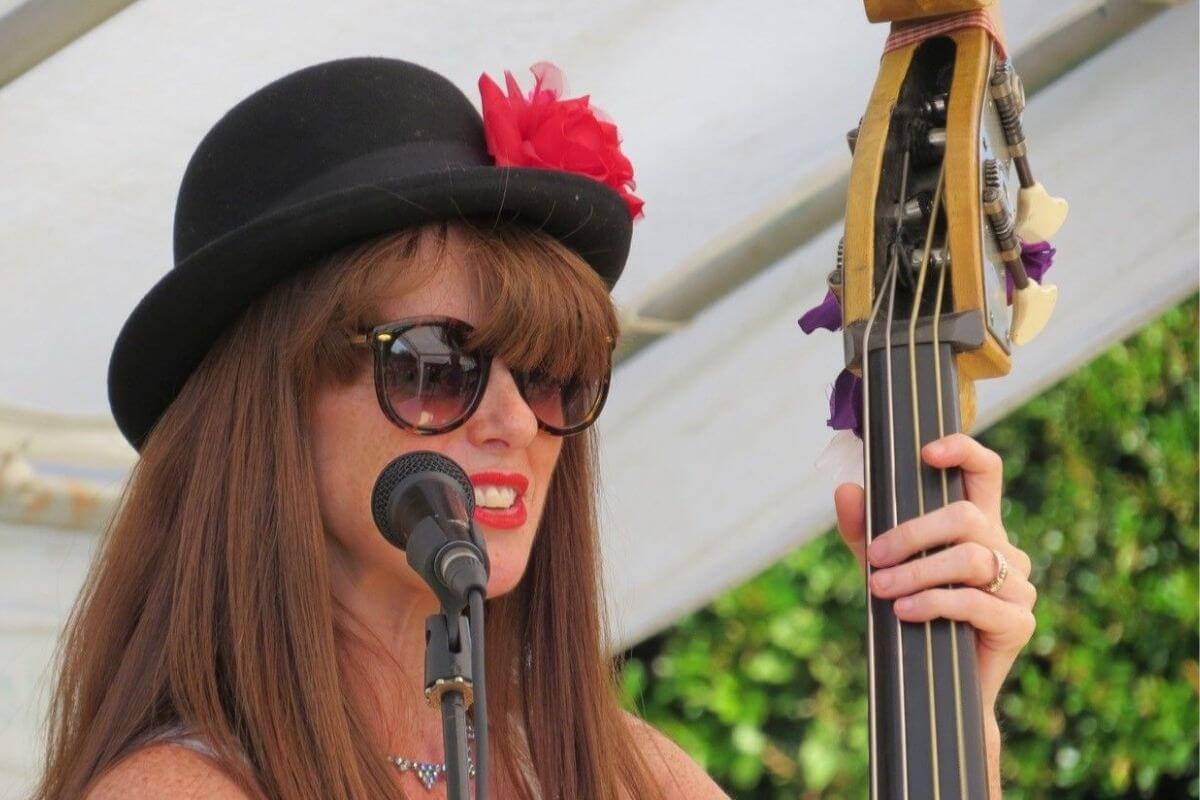The MU is keen to hear from members of all faith backgrounds. If you have a story about how your faith has helped your health and wellbeing as a musician, contact us via wellbeing@themu.org.
Chaplains are for people of all faiths or none
My faith background has been mixed, until I came into a little Methodist chapel. I was searching for something counter cultural and inclusive, with strong social justice views, that would welcome me. I found it in the Methodist Church.
After exploration and training, I became involved in Chaplaincy work in the town centre, and from that I started to become aware of my calling to be a minister. Not only that, but I felt a deep need to serve musicians like me.
You may have heard of, or had personal experience of, hospital chaplains or army chaplains. Chaplains are either lay or ordained trained people who give their time to ‘walk the walk’ with others. Their role is to be with them in their hour of need, listening and helping them to find resources. Chaplains are for people of all faiths or none, and there is no obligation to become Christian if you come into a church
My role now, having the experience of being a musician myself, is to be a listening ear
I spoke to the church about this calling because I feel that professional musicians are a community without walls. They are often profoundly spiritual people with emotional longings.
My role now, having the experience of being a musician myself, is to be a listening ear, to serve the community and to connect them with other services that may be able to help.
 I have been incredibly fortunate to have a network of supportive friends and family, but I know not everyone has that privilege. Image credit: Heather Simmons.
I have been incredibly fortunate to have a network of supportive friends and family, but I know not everyone has that privilege. Image credit: Heather Simmons.
I have had many times in my career when, amongst the highs of great gigs, there have been equal amounts of lows. Being away from home, lack of financial stability, different working hours from others around me, intense relationships only to not see each other again, the constant inner struggle of truth with my own playing are just some of the costs of this mercurial life choice.
I have been incredibly fortunate to have a network of supportive friends and family, but I know not everyone has that privilege.
For those who don’t have a support network, or can’t open up to those close to them, there is support available from church
If you come to a church, you won’t generally just find a Sunday service. You might, for example, come across coffee mornings, badminton groups, book clubs, meditation classes and choirs.
In fact, the list of varying groups is quite extraordinary. There will also be people in the congregation who give their time voluntarily and who have vast experience in financial matters, counselling, listening, grief work, property maintenance and family life.
The ethos is that you can come into church and belong immediately with no judgement. Of course, we are all human and therefore subject to our individual biases, but the church’s aim is to be welcoming to all, and you might want to explore how you could get support from it.
Think about what kind of support you are looking for and take time to find something that suits you
If you do want to look for support from a church, my advice to you is to research churches on the web and see when they are open and what is happening in them.
Think about what kind of support you are looking for: someone to listen to you, a community or network, advice? Or perhaps social interaction, such as the book clubs and badminton groups?
Have a read about the theology of the church and see if it is right for you. You might want to ask if they have female leaders or just male priests, will they marry same sex couples or not, do they baptise infants as well as adults or believe in adult only baptism, do they follow set liturgy or is their approach extempore, what is their mission work like in the community etc?
You can also visit in person to see if you like the feel of the place, and check if you connect with the people. Churches are all very different - whilst some meet in cafes, others are cathedrals. Take time to find the one that suits you.
Musicianship and vulnerability
The life of a musician is one of true human fulfillment. It connects us to the source of our very being. It connects us to one another and has a beauty that astounds.
To be a musician takes a vulnerability that is often cloaked in aplomb and mettle, and underneath that cloak is someone who has dedicated their lives to their own calling, and to give us all life-affirming pleasure. That person could need help.
Whether you are a musician needing support of any kind, or you might even be interested in music chaplaincy, I hope this article has opened a ‘church’ door for you.
If you would like to speak to a Music Chaplain, Heather Simmons can be contacted by email on heather.simmons@methodist.org.uk.